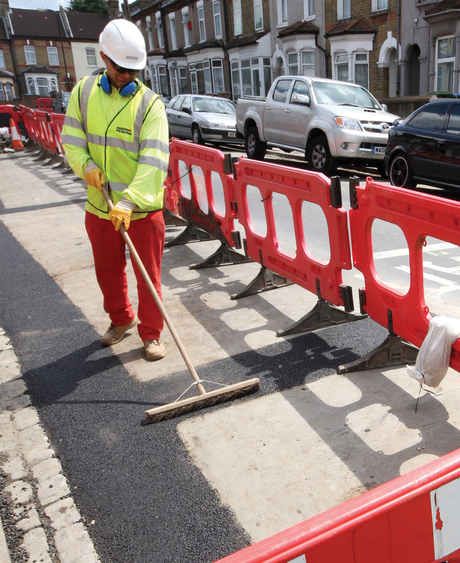Tackle complex, multitask work more efficiently

Imagine you’re responsible for maintaining the United Kingdom’s utility infrastructure. It requires managing several complex, multitask jobs every day, with each job demanding numerous field technicians with various skill sets, specialised vehicles and a range of equipment. You have a full fleet at your disposal, but how do you coordinate these variables to get all the work done, while staying competitive? This was the challenge Andy Carter, head of business process improvement at Morrison Utility Services (MUS), faced.
MUS has an important job. It keeps the UK’s utility network infrastructure in peak performance by providing maintenance services and responding to repair requests from electric, gas, water and telecommunications companies. To restore safety and minimise customer disruption, it must complete these jobs quickly and efficiently.
For every job,MUS must provide notice to the local governing authority that it will be working in a public space. And this notice has a deadline attached - a time by which MUS must have work completed, otherwise face fines and penalties.
Often, the most critical aspect impacting on-time project completion is the highway reinstatement services at the end of the job. MUS has a dedicated business line responsible for reinstatement (filling in) of the holes created by excavations and roadworks. This process often requires:
- 20+ individual, and interdependent, tasks per job
- various specialist vehicles
- sourcing and transporting materials to multiple sites
- deploying staff with proper experience, accreditation and skills
- compliance with client service level agreements (SLAs) and permit periods
That’s a lot to plan for! And previously, MUS supervisors were completing this puzzle using only spreadsheets.
“Quite often, our supervisors would be in the office until 8.30 pm trying to get the work allocated for the next day,” notes Carter.
MUS noticed this pain point at the same time it was experiencing growth, which was increasing the reinstatement team’s volume of work. Carter knew it was time to find a better way to organise and manage this complex and dynamic field service operation.
MUS needed a faster, smarter way to manage appointment variables: one that could quickly match the work type with the best available resource - and ensure it happened in the right order and maximised the field team’s productivity. Carter knew this was too much to do manually. He set out to find field service management technology with the processing power and intelligence to consider all variables - job type, required equipment, location, technician proximity and availability, time constraints, etc - and optimise job scheduling based on those factors.

MUS selected and deployed TOA Technologies’ SaaS field service management solution, ETAdirect. The application uses real data points that measure how long each MUS employee takes to complete work, and tracks which people and vehicles have the capabilities to perform each task. It then applies predictive analytics to make the best match possible between jobs and resources. “ETAdirect truly optimises our complex field work and keeps learning our tasks and routes over time to continuously improve the results,” says Carter.
The system automatically pulls reinstatement tasks from MUS’s workforce management system and allocates them to the best resource. Dispatchers can stay focused on managing exception situations, and more efficient processes help MUS consistently meet SLAs and notice periods.
Since deploying ETAdirect 12 months ago, MUS has:
- reduced excavation open times, minimising inconvenience and enhancing customer satisfaction
- realised substantial savings by reducing time spent manually scheduling and assigning work
- increased workforce productivity by intelligently scheduling interdependent tasks
- reduced travel time and fuel costs through fewer depot trips and optimised routing between work sites
- received fewer highway fines through more consistent compliance with SLAs and permit/notice regulations
- delivered faster emergency job responses thanks to real-time visibility of team location and status
Recently, MUS expanded its use of ETAdirect to manage its excavation and cable-laying teams, and will continue seeking news ways to improve its processes using the technology.
All-electric haulage fleet under mining alliance
A strategic alliance between Newmont and Caterpillar will see the rapid deployment of an...
How to measure ROI of field service management software
Some ROIs are easier to calculate than others. It's important to consider both tangible and...
Preparing the grid for electric vehicles
A new $3.4 million trial will help support growing adoption of electric vehicles across Australia...




